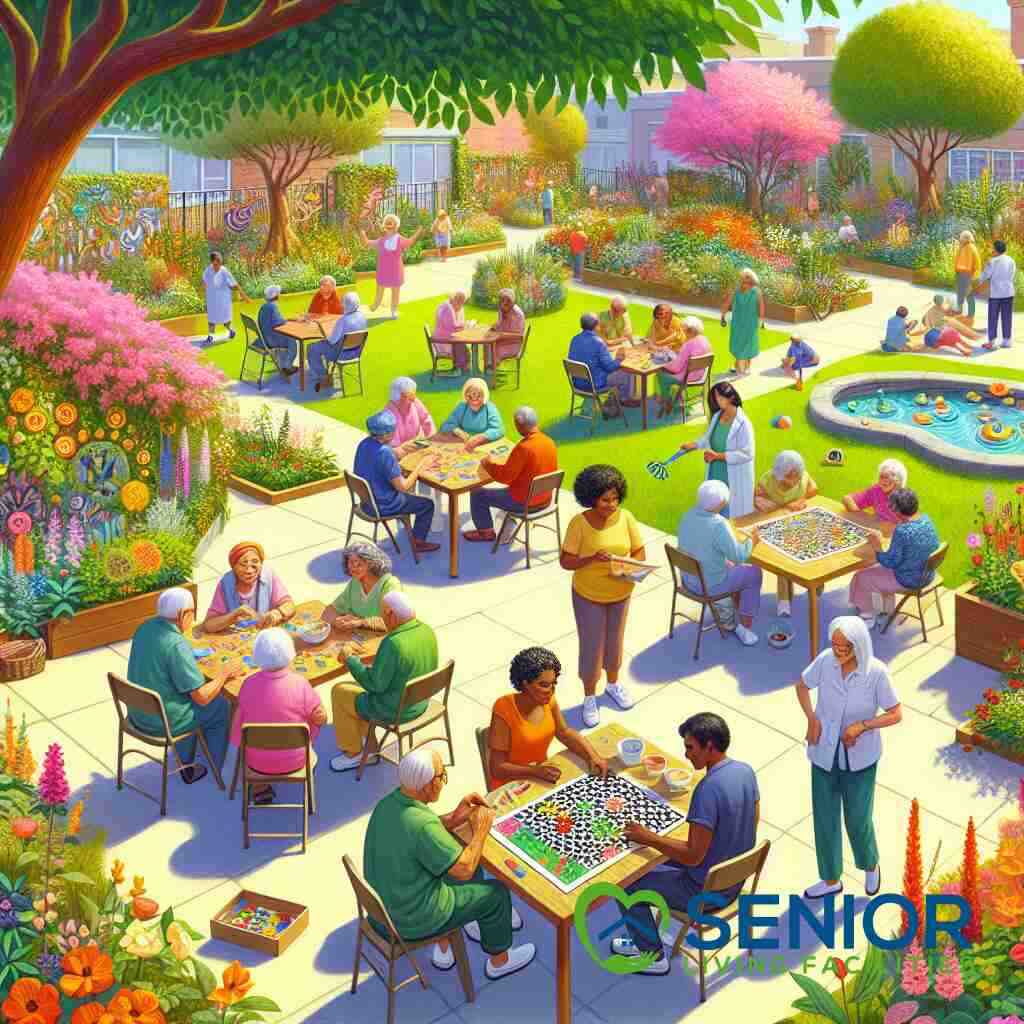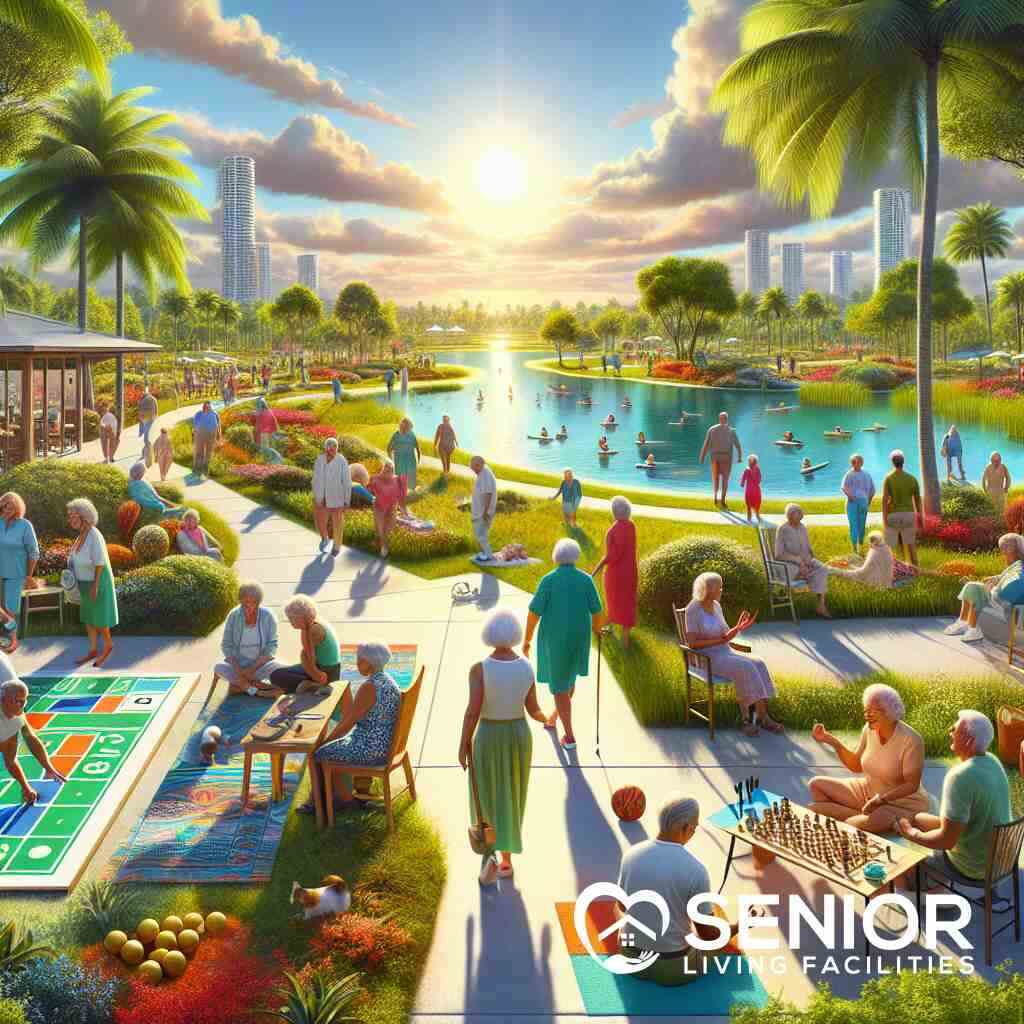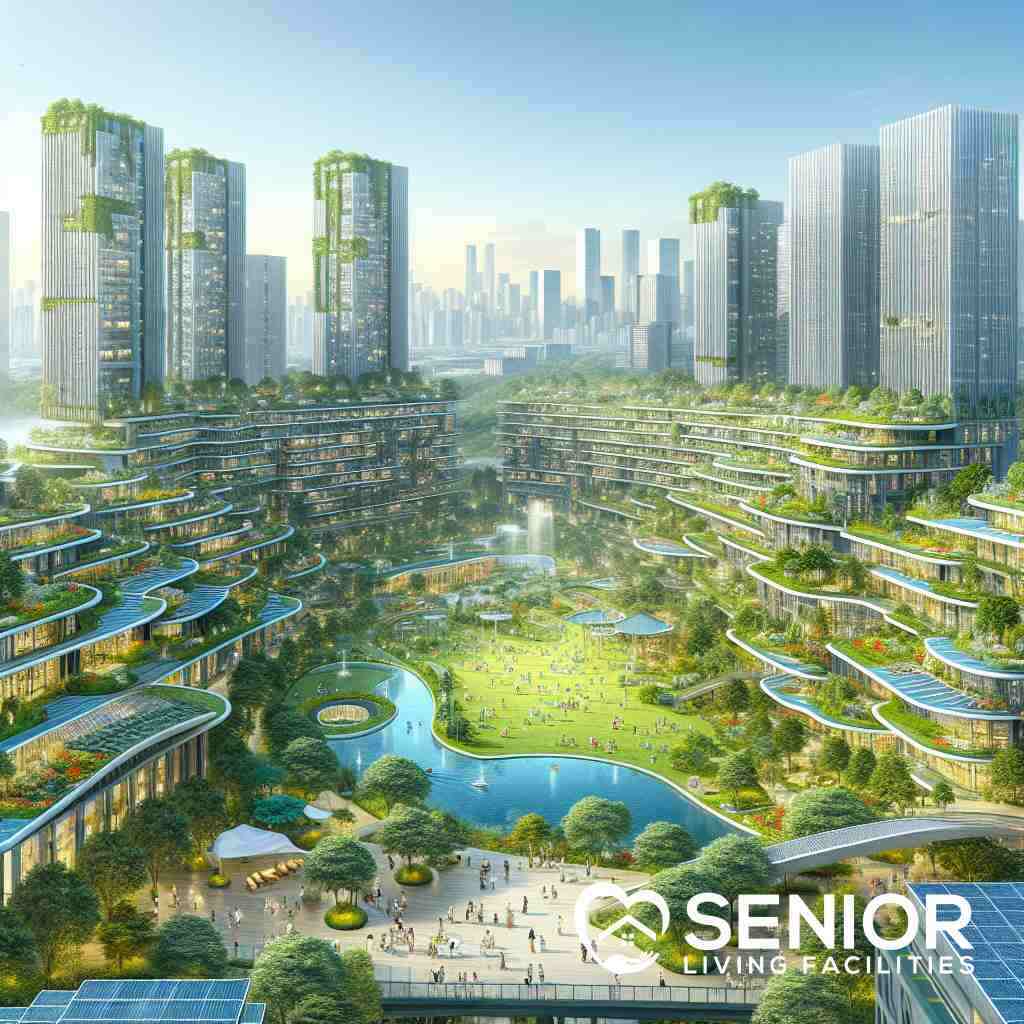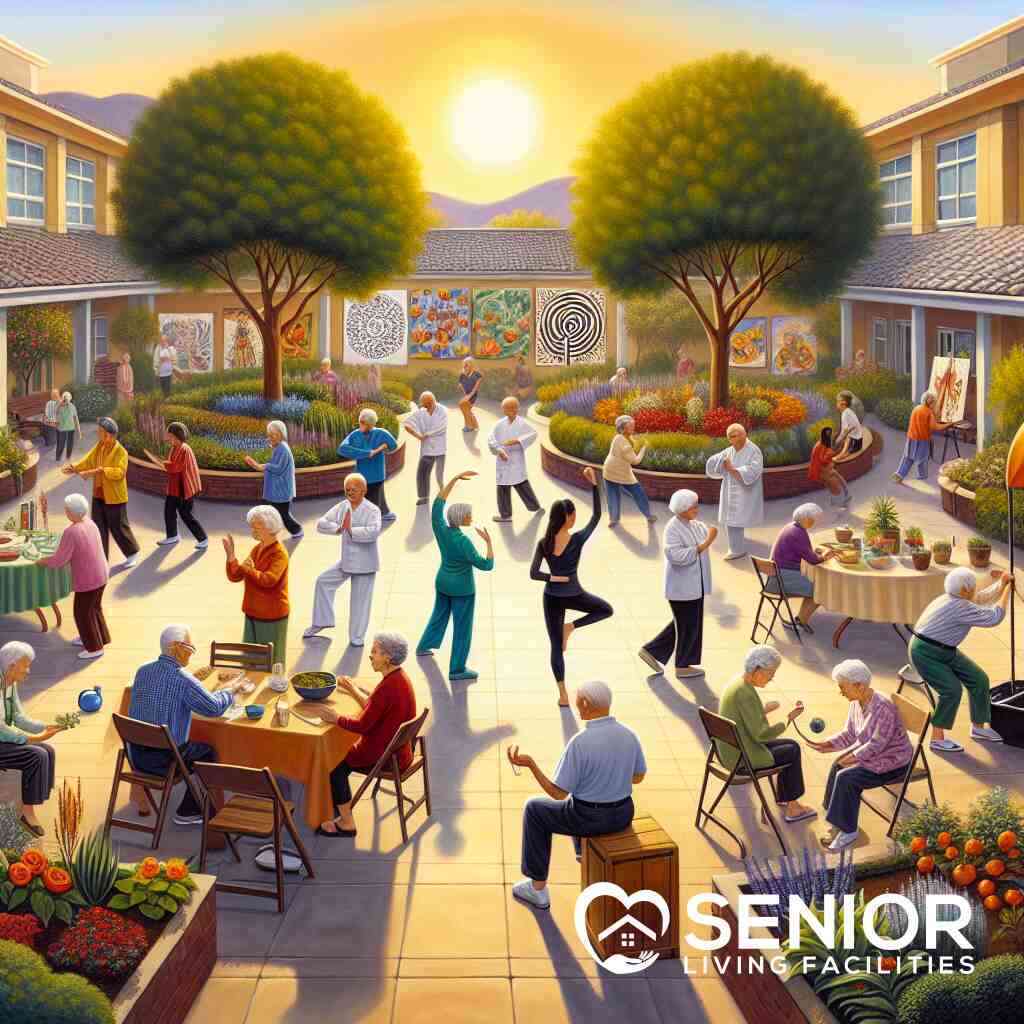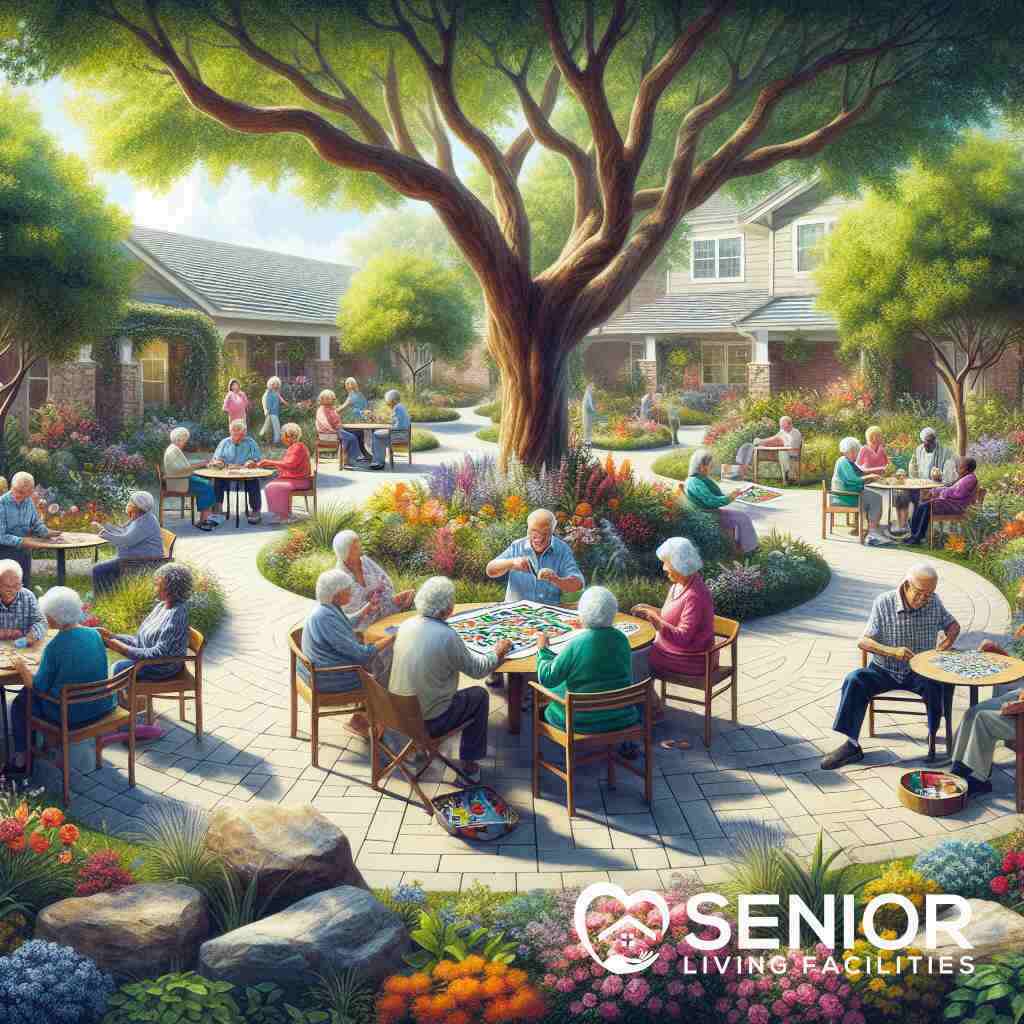
How Does Senior Living Facilities Enhance Cognitive Care?
October 31, 2024
Unlocking the Cognitive Potential in Senior Living
Introduction: The Crucial Role of Cognitive Care
Cognitive care plays a crucial role in maintaining the mental wellness of seniors residing in senior living facilities. As individuals age, they often face challenges to their memory and cognitive functions that can affect their quality of life. Addressing these cognitive needs is vital for promoting independence and dignity among the elderly. Senior living communities are meticulously designed to incorporate cognitive care strategies that ensure older adults remain mentally agile and socially engaged. This emphasis on cognitive wellness fosters an empowering environment where seniors can continue to thrive.
Understanding Cognitive Wellness for Seniors
Cognitive wellness encompasses a range of mental functions, including memory, attention, learning, and problem-solving skills. These cognitive facets are crucial for seniors, as they influence the ability to perform activities of daily living and sustain a fulfilling life. Senior living facilities prioritize cognitive wellness through structured programs and personalized approaches to meet each resident’s needs. By focusing on aspects of mental agility and vigor, these communities help mitigate age-related decline and bolster elder cognitive resilience.
The Growing Need for Enhanced Cognitive Engagement in Senior Living
With the increase in the aging population, there’s a growing demand for enriched cognitive engagement within senior living environments. The emphasis on cognitive engagement activities and mental stimulation for elderly residents is driven by an understanding of the profound impact such initiatives have on mental health and overall well-being. Senior living facilities strive to integrate varied programs such as cognitive rehabilitation for seniors, dynamic brain training exercises, and stimulating social activities. These initiatives not only sharpen cognitive faculties but also enhance social interaction, fostering an energetic and vibrant community environment.
Navigating the Landscape: Senior Living Facilities and Cognitive Care
Mapping Out Memory Care Facilities and Dementia Support Services
In the intricate world of senior care, mapping out suitable memory care facilities is paramount. These specialized facilities offer focused support to individuals grappling with cognitive impairments such as Alzheimer’s and dementia. They are designed to create safe, structured environments that promote cognitive health while ensuring residents’ security and dignity. The integration of dementia support services further augments this care by addressing specific needs through person-centered approaches. Such facilities are equipped with professional staff trained in advanced strategies to manage cognitive decline, ensuring residents receive not only specialized attention but also emotional support to combat the loneliness that can accompany dementia-related conditions.
Moreover, community-based dementia support services enhance the quality of life for both residents and their families. Comprehensive services ranging from 24-hour care to therapeutic activities help maintain cognitive engagement and prevent further cognitive deterioration. Senior living facilities in the United States stretch across all 50 states, strategically positioning memory care residences and dementia support in proximity to families. This proximity allows for family involvement, which can be critical in maintaining a connection and continuity of experience for the resident.
Evaluating Alzheimer’s Care Communities Across the States
Alzheimer’s care communities are crucial in the landscape of senior living, providing tailored environments where older adults can live with dignity and respect. These communities focus on specialized Alzheimer’s care, offering programs and environments specifically designed to cater to individuals with cognitive impairments. When evaluating these communities across the United States, key factors include the quality of care, the training of staff in understanding Alzheimer’s patients’ needs, and the availability of personalized care plans that adapt as the residents’ needs change.
Evaluating an Alzheimer’s care community requires an assessment of its cognitive support tools and engagement activities. Whether through sensory stimulation, music therapy, or art programs, these communities strive to offer diverse opportunities that nurture cognitive capabilities and stimulate neurological pathways. Finding the right fit includes analyzing community engagement levels, personalized care measures, and family involvement options. Tailored services and a compassionate approach ensure that residents experience a nurturing environment where they feel valued and understood.
Integration of Cognitive Engagement Activities in Assisted Living Plans
Incorporating cognitive engagement activities into assisted living plans is essential to enhancing residents’ cognitive wellness. These activities, which include puzzles, memory games, and social interactions, play a significant role in maintaining and improving cognitive health. Assisted living facilities across states prioritize creating stimulating environments that foster resident participation in engaging activities, nurturing their cognitive abilities and social connections.
The integration of such activities requires thoughtful planning and a personalized approach to meet each resident’s unique cognitive levels and preferences. Programs are designed to optimize participation while cultivating environments where residents feel compelled and motivated to engage. Assisted living communities offer opportunities for residents to partake in structured activities that promote problem-solving and cognitive retention. Through dynamic engagement plans and a focus on holistic wellness, assisted living facilities serve as hubs of vibrant living, contributing significantly to the cognitive care landscape in senior communities.
Innovative Strategies for Cognitive Health and Engagement

Exploring Cognitive Rehabilitation and Therapy Programs
Cognitive rehabilitation for seniors forms the backbone of innovative cognitive care strategies in senior living facilities. These programs aim to restore, maintain, and enhance cognitive functions such as memory, reasoning, and attention. Through structured therapeutic exercises, seniors work on personalized goals that address areas of cognitive decline, with the aim of re-establishing neural pathways and enhancing brain function. The interplay of therapy programs with daily activities ensures seniors experience a balanced regimen of mental and physical stimulation.
Modern therapy programs are designed to integrate seamlessly into the residents’ daily routines while being carefully tailored to each individual’s cognitive capacities. Senior living facilities meticulously select therapeutic activities, from technology-assisted brain games to interactive puzzles that challenge the mind and encourage active participation. This approach is not only instrumental in enhancing cognitive capabilities but also crucial in preventing further cognitive deterioration, thereby allowing seniors to enjoy improved mental clarity and quality of life.
Implementing Personalized Cognitive Care Plans for Seniors
Personalized cognitive care plans stand out as a transformative element within senior living communities, particularly within those focusing on cognitive wellness. These plans are tailored to the unique cognitive profiles and preferences of individual residents, ensuring that each senior receives the most effective care possible. By analyzing cognitive abilities and identifying specific needs, facilities can create holistic care strategies that prioritize mental agility, emotional stability, and social interaction.
A core component of these personalized plans is adaptability; caregiving strategies evolve as the seniors’ cognitive needs change over time. This flexibility ensures that residents continue to receive appropriate neurological support in elder care environments. Such advanced planning facilitates a sense of autonomy and empowerment among seniors, reinforcing their dignity and enhancing their daily living experience. The integration of caregivers, medical staff, and family members into the care planning process fosters a supportive community focused on maximizing cognitive health outcomes. Visit here for more insights on implementing personalized cognitive care plans in senior settings.
Harnessing Mind-Enhancing Activities and Brain Training
Senior living facilities are increasingly emphasizing the role of mind-enhancing activities and brain training as vital components of cognitive care. These tools serve both preventive and rehabilitative functions, designed to keep the mind sharp and bolster cognitive resilience. Activities such as memory games, strategy puzzles, and educational workshops challenge the brain in novel ways, fostering continuous cognitive engagement and retention of cognitive abilities.
Facilities are implementing cutting-edge brain training programs, which utilize technology to track progress, adapt difficulty levels, and offer personalized experiences tailored to each resident’s cognitive performance. These programs promote not only mental stimulation but also overall brain health in aging populations. As seniors engage in diverse activities, they develop new skills, enhance existing abilities, and maintain an active lifestyle that supports cognitive wellness. A commitment to brain training in retirement homes transforms senior living communities into hubs where cognitive enhancement thrives, promoting longevity and vitality among residents.
The Future of Cognitive Care in Senior Communities
Fostering Cognitive Resilience in Aging Adults
Fostering cognitive resilience in elder care involves building an environment where seniors can thrive despite age-related cognitive challenges. Cognitive resilience ensures that seniors maintain mental sharpness through a combination of support systems, targeted activities, and personalized care. This resilience is nurtured by providing opportunities for continuous learning and cognitive engagement, leveraging resources and methods that stimulate neural plasticity. Incorporating mind-stimulating activities like strategic puzzles and group discussions can significantly bolster mental endurance, allowing seniors to adapt better to cognitive changes. Senior living facilities are uniquely positioned to enhance cognitive resilience, offering structured interventions and tailored programs to help seniors lead fulfilling lives.
Innovative approaches in senior living environments focus on creating structures that support not only day-to-day cognitive functionalities but also deeper cognitive well-being. Facilities now integrate advanced therapeutic measures like music and art therapy, which are known to activate and strengthen various areas of the brain. By encouraging active participation in cognitive wellness programs, seniors can effectively build resilience against cognitive decline, enhancing overall quality of life. Continuous cognitive training and mental exercises form the core strategies, ensuring seniors remain confident and capable despite the natural challenges of aging. Learn how cognitive care at cognitive resilience in elder care forms a bedrock principle for modern senior care.
Evolving Cognitive Health Strategies in Senior Living Environments
Cognitive health strategies in senior living facilities continue to evolve, embracing technological advancements and insights from geriatric research. With a growing understanding of the factors that influence aging brains, senior communities are now integrating multisensory experiences and tech-driven solutions. Interactive tools, such as virtual reality, are employed to simulate enriching environments that inspire exploration and curiosity among residents. These technologies do more than entertain; they actively engage different regions of the brain, fostering improved cognitive functions and enhancing emotional health.
Additionally, the personalization of cognitive health plans remains at the forefront of these evolving strategies. Tailored approaches, which account for individual preferences and cognitive profiles, ensure that interventions are both impactful and engaging. By promoting a culture of choice and autonomy, these facilities empower seniors to participate actively in their cognitive care journey. As strategies continue to adapt, the commitment to integrating holistic practices-incorporating diet, physical activity, and social interaction into cognitive care plans-remains unwavering. These inclusive methods pave the way for comprehensive wellness, reflecting a deep commitment to enhancing life quality for every senior resident.
The Road Ahead: Innovating Cognitive Support in Elder Care
The future of cognitive support in elder care is promising, driven by a dedication to innovation and excellence. Emerging techniques are focused on creating adaptable environments that respond to the changing cognitive landscapes of seniors. As research advances, new therapies targeting specific cognitive deficits become possible, allowing for more precise interventions. Emerging innovations foster an inclusive atmosphere where seniors can harness advanced cognitive therapy for the elderly, promoting dignity and self-worth in their daily lives.
Leading the charge are senior communities that have made significant investments in training caregivers to understand and employ cutting-edge methodologies. These facilities are moving beyond merely managing symptoms to creating enriching settings that support continuous cognitive growth. The collaboration of medical professionals, caregivers, and family members ensures a supportive network dedicated to each individual’s cognitive progression. As we explore the future, innovations like artificial intelligence and brain-computer interfaces present new opportunities for care, potentially transforming how seniors interact with their environments and maintain cognitive health. Discover how cognitive wellness in senior programs represents the next frontier in senior living.
Conclusion: The Cognitive Care Revolution in Senior Living
Summary of Enhanced Cognitive Care Benefits
Senior living facilities have redefined cognitive care by integrating comprehensive strategies that focus on mental wellness and overall quality of life. By prioritizing cognitive care in senior communities, these facilities enhance memory retention, facilitate social connections, and promote emotional well-being for residents. Specialized programs, including brain training and therapeutic activities, contribute significantly to mental agility, enabling seniors to maintain independence longer. These benefits underscore the critical nature of cognitive wellness initiatives, positioning senior living communities as leaders in cognitive health and geriatric wellbeing.
Empowering Seniors through Advanced Cognitive Wellness
At the heart of advanced cognitive wellness is empowerment, providing seniors with the tools and support needed to navigate cognitive challenges. Personalized care plans and cognitive rehabilitation for seniors are central to this empowerment, adapting to individual needs and fostering resilience. By leveraging innovative practices such as mind-enhancing activities and neurological support in elder care, facilities offer a robust framework for achieving optimal cognitive health. This commitment empowers seniors to take charge of their brain health, fostering a sense of autonomy and accomplishment in everyday living.
Final Thoughts on the Intersection of Cognitive Health and Senior Living Facilities
The intersection of cognitive health and senior living facilities represents an exciting frontier in elder care, driven by an unwavering commitment to excellence. As senior communities continue to evolve, embracing cutting-edge strategies and technologies, the potential for enhanced cognitive functions and mental clarity expands. These developments promise not only to improve current standards but also to redefine what holistic senior care can achieve. With a focus on innovative cognitive skills enhancement strategies and a supportive community environment, senior living facilities are well-positioned to lead the way in the ongoing cognitive care revolution, ensuring seniors a future with dignity, engagement, and vitality.
Frequently Asked Questions
Question: How do Senior Living Facilities enhance cognitive care in senior living?
Answer: Senior Living Facilities enhances cognitive care through a comprehensive approach focused on maintaining and improving brain health in aging residents. Our communities implement a range of cognitive engagement activities and personalized cognitive care plans tailored to each senior’s unique cognitive needs. By offering memory care facilities and dementia support services, we ensure that residents receive specialized care to manage age-related cognitive challenges. Our programs include mind-enhancing activities, brain training in senior communities, and cognitive rehabilitation for seniors, all designed to enhance cognitive wellness and resilience.
Question: What types of cognitive engagement activities are available at Senior Living Facilities?
Answer: At Senior Living Facilities, cognitive engagement activities are diverse and designed to stimulate the mind. These activities include memory games, strategy puzzles, social interactions, and educational workshops. We also offer brain fitness programs that promote mental stimulation for the elderly, enhancing cognitive function and mindfulness. By integrating advanced cognitive therapy for the elderly, our communities provide an enriching environment that supports senior cognitive resilience and mental sharpness.
Question: Can you describe how personalized cognitive care plans work in senior living?
Answer: Personalized cognitive care plans at Senior Living Facilities are customized to meet the distinct cognitive profiles and preferences of our residents. Our experienced staff conducts thorough evaluations to create tailored strategies that prioritize mental agility, emotional stability, and social interaction. These plans are adaptable, evolving with the seniors’ needs over time, ensuring consistent neurological support in elder care. By involving caregivers, medical staff, and family members, we create a cohesive support network that fosters cognitive wellness for seniors and enhances their quality of life.
Question: How do Senior Living Facilities ensure the cognitive health of residents with Alzheimer’s or dementia?
Answer: Senior Living Facilities ensure the cognitive health of residents with Alzheimer’s or dementia through specialized Alzheimer’s care communities and memory care facilities. Our communities are equipped with trained professionals who implement advanced strategies for cognitive support. Through dementia support services and therapeutic activities, we focus on maintaining cognitive engagement and mitigating cognitive decline. Additionally, our memory care facilities offer a safe and structured environment that encourages social interaction, helping combat loneliness and promoting a sense of community among residents.
Question: What role does brain training play in enhancing cognitive care at Senior Living Facilities?
Answer: Brain training is a vital component of cognitive care at Senior Living Facilities. Our programs are designed to foster improvement in elderly cognition by challenging the brain with memory games and interactive puzzles. Utilizing the latest technology, we offer personalized brain training experiences that adapt to the residents’ cognitive performance, ensuring they are both engaging and effective. These efforts are part of our commitment to providing comprehensive senior cognitive retention strategies that help maintain mental sharpness and promote a fulfilling lifestyle among our community members.
